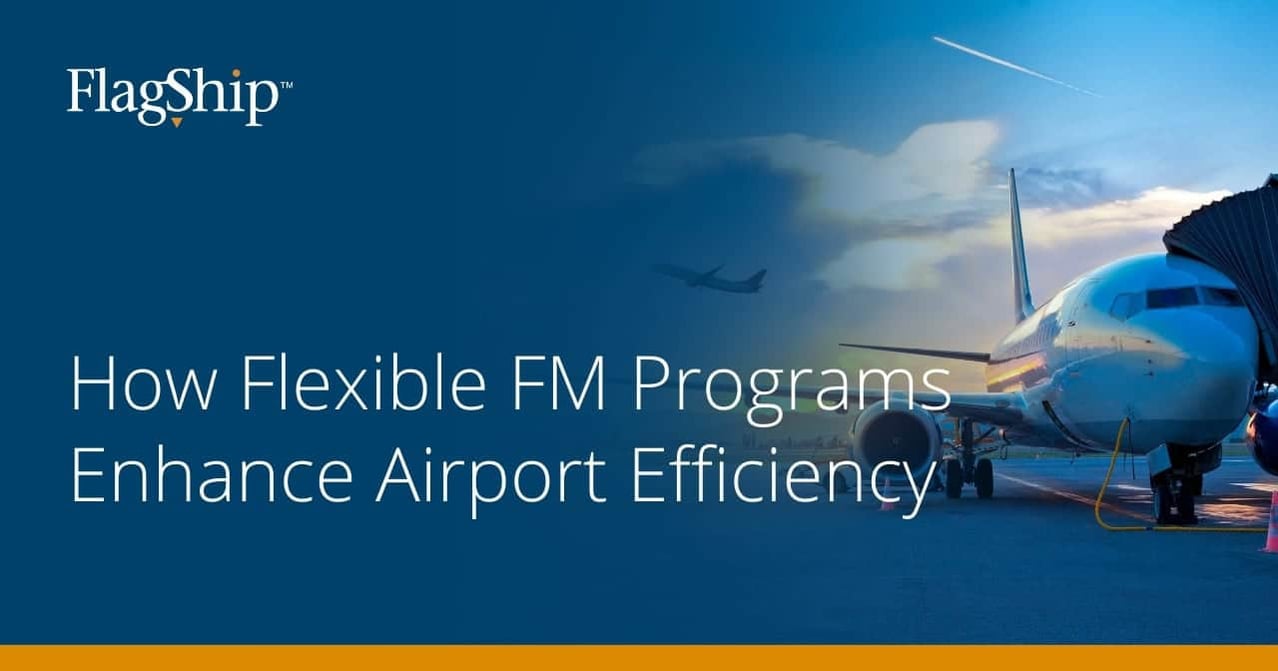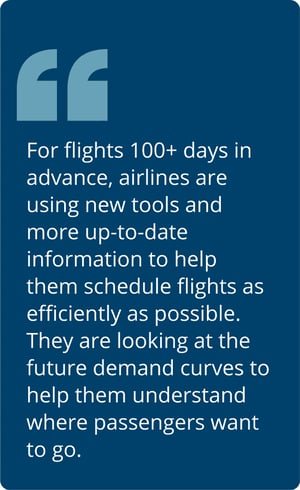
As airport operations evolve to meet increased travel demand and changing flight schedules, strategic facilities management becomes increasingly crucial to ensure smooth operations and an enhanced passenger experience.
In this new environment, a flexible FM program is more critical than ever. Airports serve as the first point of contact for millions of travelers, making it essential to maintain clean, safe, and well-organized spaces. This requires a proactive and adaptable approach to FM that anticipates changes and adjusts operations to maintain optimal service levels.
In this blog post, we’ll discuss how dynamic airline schedules influence every aspect of airport operations and examine strategies for effectively adapting to change.
The Ripple Effect of Changing Airline Schedules
The emergence of advanced scheduling tools and comprehensive data analytics has significantly influenced how airlines manage their flight patterns. These technologies enable airlines to optimize their operations in real-time, responding dynamically to changes in passenger demand, weather conditions, and other variables.
 By leveraging sophisticated algorithms and predictive analytics, airlines can now adjust their schedules with unprecedented precision. This not only maximizes efficiency and reduces operational costs but also improves the overall travel experience by minimizing delays and ensuring better connectivity.
By leveraging sophisticated algorithms and predictive analytics, airlines can now adjust their schedules with unprecedented precision. This not only maximizes efficiency and reduces operational costs but also improves the overall travel experience by minimizing delays and ensuring better connectivity.
"For flights 100 plus days in advance, airlines are using new tools and more up-to-date information to help them schedule flights as efficiently as possible. They are looking at the future demand curves to help them understand where passengers want to go," said Jeff Pelletier, managing director of Airline Data Inc.
When airlines increase flight frequencies during peak travel times or introduce new routes, airports experience significant surges in passenger numbers. Conversely, reductions in flight activity during off-peak hours or the discontinuation of certain routes can lead to noticeable dips in traffic.
For airport managers, understanding the correlation between airline schedules and passenger volume is critical, as it allows for more effective coordination with airlines and better anticipation of passenger needs.
The ripple effects of changing airline schedules are thus a key focus in the management of airport facilities, influencing everything from staffing levels to maintenance schedules and resource deployment across airport operations.
Challenges in Airport FM
The ebb and flow of travelers, influenced by varying flight schedules, requires a heightened focus on cleaning and maintenance to ensure that facilities always remain clean and functional.
This need becomes especially pronounced during peak travel hours, when the influx of passengers can quickly lead to overcrowded spaces and stretched facilities. During off-peak times, the challenge lies in scaling down operations efficiently without compromising service quality.
Airport managers face the daunting task of balancing these dynamics, which includes managing emergency cleanups and maintaining a consistent level of service across different times and conditions. The ability to quickly mobilize cleaning crews and maintenance staff during such emergencies is crucial, and it tests the agility and responsiveness of FM teams.
To navigate these challenges, there's a clear need for flexible and scalable FM solutions that can adapt in real-time to changing requirements. Implementing systems that can dynamically allocate resources based on actual airport traffic can greatly enhance operational efficiency.
This flexibility ensures a high standard of upkeep and service that passengers expect. Such foresight is essential for maintaining the resilience and reputation of airport operations.
Enhancing Operations with Real-Time Traffic Monitoring
Incorporating technology to monitor passenger traffic flow further amplifies the benefits of a flexible maintenance plan. Advanced systems, such as IoT sensors and AI-powered analytics platforms, can provide precise, real-time data on passenger movement and density.
This information enables staff to identify areas that will require maintenance or cleaning before they become problematic. For example, if technology predicts a traffic surge in a particular concourse due to a delayed flight, maintenance teams can be proactively dispatched to the area.
Flagship is proud to partner with TRAX Analytics, which uses a unique blend of technology, sensor integrations, and data analysis to streamline operations and improve passenger experiences.
The TRAX Smart Restroom platform integrates with more than 45 different sensors to provide frontline workers with restroom maps and live data, enabling them to proactively address cleaning and maintenance needs.
There are several other approaches that airport managers can take to achieve flexibility in their FM program, including:
- Cross-Training Staff: Training FM staff in multiple roles can significantly enhance operational flexibility. This approach ensures that the workforce is adaptable and can be deployed in various capacities as needed.
- Modular Services and Infrastructure: Designing services and physical layouts that are modular allows for quick adaptation to changing needs. For example, using movable cleaning stations and maintenance tools that can be easily transported and set up in different parts of the airport can help address areas that require immediate attention.
- Flexible Scheduling and Shift Patterns: Implementing flexible work schedules and shift patterns that can be adjusted based on real-time data and forecasts of passenger volumes ensures that staffing levels always match the operational demand. This can include split shifts, on-call systems, and scalable work hours that align with varying peak times.
- Regular Training and Simulations: Regular training sessions and simulation exercises for emergency and high-demand scenarios can prepare staff to handle unexpected situations efficiently and with confidence.
- Strategic Partnerships and Outsourcing: Forming partnerships with third-party service providers can provide additional resources that can be called upon when needed. This strategy can be particularly useful for handling peak times or special situations without the overhead of maintaining a large permanent staff.
With 35 years of experience in the aviation industry and a presence in more than 25 airports across the country, Flagship knows how to navigate fluctuating passenger volumes, construction and renovation, and other dynamic challenges.
We believe that effective FM requires a strategic approach that not only anticipates change but also responds with precision and agility. A flexible Scope of Work (SOW) is critical to this approach.
Everything we do for our customers starts with an SOW evaluation. Through this exercise, we’re able to gain an understanding of the challenges you face and pinpoint areas for improvement.





Leave a Comment